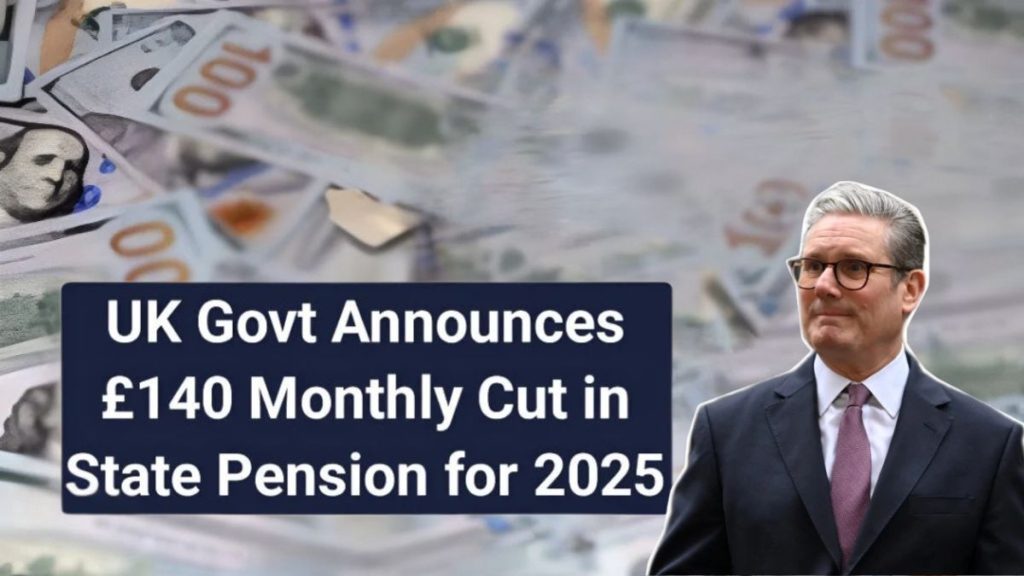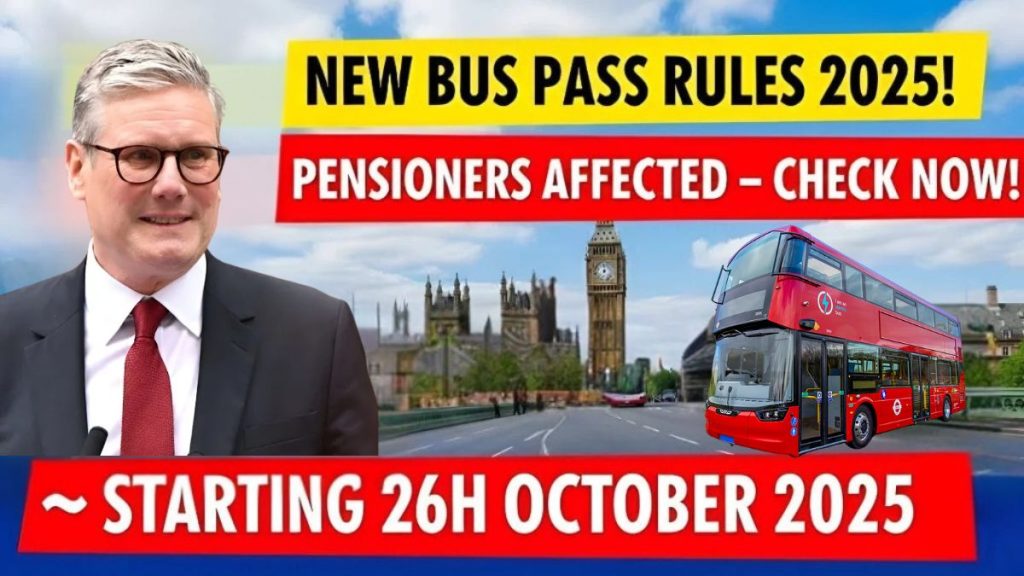Effective from September 2025, this reform aims to streamline the recovery of tax overpayments and unpaid liabilities tied to pension income. However, the move has stirred debate among senior citizens and financial experts, raising questions about fairness, notice periods, and safeguards for vulnerable retirees
Why HMRC Introduced the £300 Deduction Rule

The new £300 deduction policy is part of HMRC’s wider effort to modernise pension tax recovery and prevent administrative delays.
In the past, retirees who owed small sums due to overpaid credits, underreported income, or incorrect tax codes received repayment letters or arrears notices. This manual process often led to confusion, late payments, and unnecessary stress for older taxpayers.
HMRC now says the updated system is “automated, consistent, and transparent” — replacing paper correspondence with direct deductions via banks.
The main aims include:
- Reducing paperwork: Removing the need for physical letters and repayment demands.
- Preventing large annual bills: Introducing smaller, more manageable automatic deductions.
- Simplifying pensioner taxation: Bringing retirees under a system closer to PAYE (Pay As You Earn) for workers.
- Improving recovery efficiency: Allowing HMRC to reclaim minor overpayments more quickly.
While the measure is meant to improve fairness and reduce errors, many pensioners remain unsure about whether they’ll be affected — and how to dispute any unexpected deductions
Who Will Be Affected by the £300 HMRC Deduction
According to HMRC, the new rule does not apply to every pensioner. It specifically targets individuals identified through tax assessments as having outstanding liabilities or historical overpayments.
| Category | Likelihood of Deduction | Description |
|---|---|---|
| Pensioners with unpaid tax | High | Retirees who owe income or pension tax balances to HMRC. |
| Overpaid benefits recipients | High | Those who received excess Pension Credit or tax credits. |
| Individuals under repayment plans | High | Pensioners already on HMRC repayment arrangements. |
| Fully compliant pensioners | Low | No deduction expected if taxes are up to date. |
| Pensioners living abroad | Moderate | Deductions possible under dual-taxation rules or reporting delays. |
The £300 deduction will primarily apply where discrepancies exist in pension-related income or tax credit reconciliations.
However, advocacy groups have cautioned that data-matching errors could lead to deductions being applied incorrectly. Pensioners are therefore urged to check their HMRC online accounts regularly to confirm their current tax status.
How the £300 Deduction Will Appear on Bank Statements
HMRC has stated that deductions will be clearly identified to avoid confusion. On bank statements, the transaction will appear as:
“HMRC Deduction”
There are two possible deduction formats:
- One-Time Deduction: A single £300 withdrawal.
- Installment Deductions: Three smaller withdrawals of £100 each, spread over three months.
All deductions will be preceded by official notification — either by letter, email, or HMRC account alert — at least 30 days before the transaction.
To protect pensioners’ essential funds, HMRC will leave at least £5,000 untouched in any account, in line with its Direct Recovery of Debts (DRD) safeguard policy.
Why the Rule Is Controversial Among Pensioners
The announcement has been met with mixed reactions. HMRC describes it as a “fair and modernised approach,” yet senior organisations and financial welfare groups argue it may place additional strain on low-income retirees.
Key concerns include:
- Reduced monthly income: Many pensioners live on fixed budgets, and a sudden £300 deduction could disrupt essential spending.
- Timing overlap with winter costs: The deductions begin just before colder months, when heating bills increase.
- Bank fees and overdrafts: Unexpected withdrawals could trigger overdraft charges or missed bill payments.
- Communication clarity: Some retirees worry they might miss HMRC notifications due to outdated contact details.
Groups like Age UK and Independent Age have urged the government to ensure:
- Minimum 30-day advance notice,
- Flexible repayment options for those in hardship,
- And a formal appeal process for any errors.
Without clear communication, they warn, the reform could cause unnecessary anxiety for older citizens already coping with tight budgets.
What Pensioners Should Do Before September 2025
Financial experts are advising pensioners to act early to prevent surprises once deductions begin.
Here are key steps to take before the new system rolls out:
| Action | Purpose |
|---|---|
| Log into HMRC Online Account | Check for any outstanding pension-related tax balances or repayment notices. |
| Contact HMRC Early | Resolve potential discrepancies or disputed liabilities before deductions begin. |
| Enable Banking Alerts | Receive real-time notifications for transactions labelled “HMRC Deduction.” |
| Maintain an Emergency Fund | Keep a small buffer for unexpected withdrawals or payment delays. |
| Consult Free Advice Services | Organisations such as Citizens Advice or Age UK can assist in resolving issues. |
Ensuring your banking and contact details are current with both HMRC and the Department for Work and Pensions (DWP) is essential for receiving timely notices.
How to Confirm Whether You’ll Be Affected
To check your eligibility under the new HMRC deduction system:
- Log in to your HMRC Personal Tax Account online.
- Review your “Pension Income” and “Outstanding Balances” sections.
- Look for any letters of reconciliation or overpayment notifications.
- Contact HMRC directly if you’re uncertain — early clarification can prevent automated deductions.
For pensioners uncomfortable with online systems, HMRC’s telephone helpline can assist with account verification and dispute filings.
Timeline for Implementation
HMRC has outlined the following schedule for the rollout:
| Event | Expected Date |
|---|---|
| Policy announcement | March 2025 |
| Pilot testing and verification | June – August 2025 |
| Official rollout begins | September 2025 |
| First deductions visible in bank accounts | Mid-October 2025 |
| First policy review | Early 2026 |
This timeline provides several months for pensioners to review their records and, if needed, challenge any potential miscalculations before deductions are made.
Government’s Response and Safeguards
Following parliamentary discussions and public feedback, HMRC has emphasised that no deductions will occur without prior notification and appeal rights remain fully protected.
The agency has also confirmed:
- Pensioners can request alternative repayment schedules if facing hardship.
- Deductions will pause while a dispute or appeal is under review.
- No funds will be withdrawn if an account balance falls below £5,000 after deduction.
Officials argue the framework promotes fairness and consistency, ensuring overpayments are recovered without resorting to aggressive debt collection tactics.
What Happens If the Deduction Is Applied Incorrectly
If a pensioner notices a £300 HMRC deduction they believe is wrong:
- Contact HMRC immediately — quote your National Insurance number and pension reference.
- Request an official review or appeal. HMRC must suspend recovery until the case is investigated.
- Notify your bank. Inform your financial institution in case temporary payment protection is needed.
- Seek third-party help. Contact Citizens Advice, Age UK, or TaxAid UK for guidance.
HMRC says any mistaken deductions will be refunded within 30 working days once confirmed.
Potential Long-Term Implications
Experts believe this £300 deduction is part of a larger move toward automated pension tax management.
In the coming years, similar deductions could apply to:
- Unreported investment or savings income.
- Housing-related benefit overpayments.
- Past miscalculations in Pension Credit or tax reliefs.
This would bring pension taxation closer to the PAYE system used for workers — continuously adjusting tax balances rather than reconciling them annually.
Critics, however, warn of the risk of digital errors in automated systems, particularly affecting older pensioners unfamiliar with online tools.
Financial Advice for Affected Pensioners
If you believe you may fall under the deduction category, consider the following:
- Keep records of all correspondence with HMRC.
- Request a written breakdown of any alleged overpayment before agreeing to repayment.
- Ensure your pension provider and bank details are consistent with HMRC records.
- Seek independent financial advice if deductions would create hardship.
Free guidance is available through MoneyHelper UK, Citizens Advice, and local Age UK branches.
Public Reaction to the £300 Deduction Rule
The announcement has sparked widespread discussion across the UK. While some view it as a long-overdue efficiency upgrade, others see it as a risky overreach into pensioners’ financial privacy.
Social forums and pensioner networks have reported growing unease about automated access to personal bank accounts. Many retirees have called for greater transparency and for HMRC to ensure error-free implementation.
The Broader Context — Aligning with Digital Taxation
The £300 deduction aligns with HMRC’s broader “Making Tax Digital” initiative, aimed at creating an integrated, real-time taxation system across all income types.
By connecting bank data, pension providers, and tax records, HMRC hopes to reduce fraud, speed up recovery, and minimise administrative costs.
However, privacy advocates insist that any such automation must include robust safeguards and manual oversight, especially for vulnerable citizens
What Pensioners Can Expect Moving Forward
The first deductions under the new rule will begin appearing on bank statements by mid-October 2025.
For most pensioners, this will not apply — but for those with unresolved overpayments or tax issues, it marks the start of a new, more automated recovery era.
The next HMRC review, scheduled for early 2026, will assess the system’s accuracy and determine if further changes or extensions are necessary
(3) Frequently Asked Questions (FAQ)
1. When does the £300 HMRC pension deduction begin?
The new automatic deduction rule takes effect from September 2025, with the first visible transactions expected by mid-October 2025.
2. Will every pensioner be affected?
No. The rule only applies to those with outstanding tax liabilities or overpayments identified by HMRC’s system.
3. How will I know if a deduction is planned for me?
HMRC will send a notice at least 30 days before any deduction via letter, email, or your online tax account.
4. Can I appeal or stop a deduction?
Yes. Pensioners have the right to appeal or dispute any deduction, and HMRC will pause recovery during investigation.
5. What if HMRC takes the money by mistake?
If an error occurs, HMRC promises to refund the amount within 30 working days after confirming the mistake





















